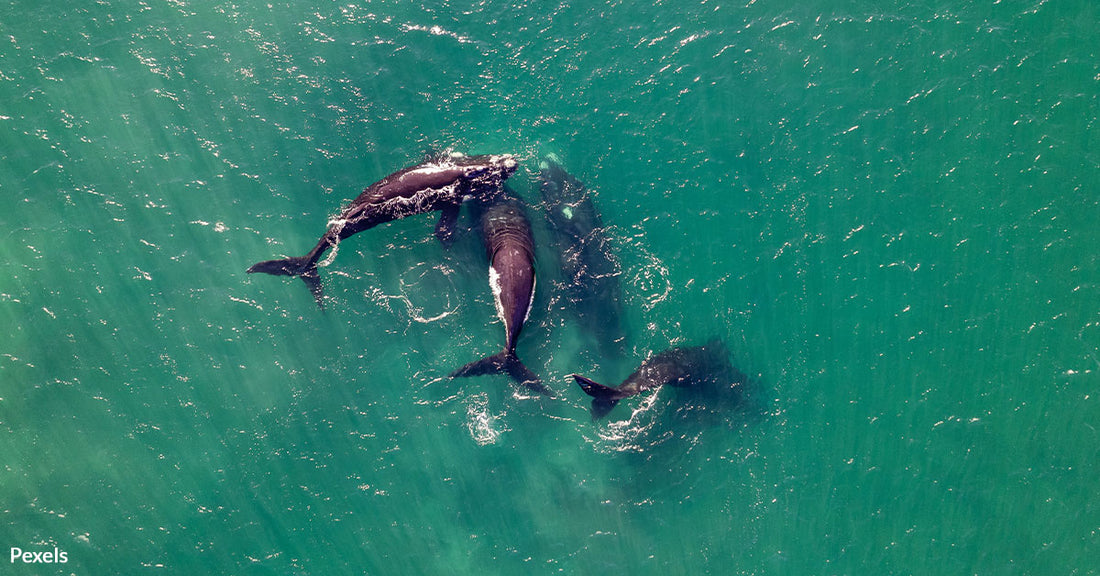Scientists Have 3 Ideas On Why Killer Whales Kill Porpoises Without Eating Them
Matthew Russell
Killer whales, also known as orcas, are majestic creatures of the ocean. However, a baffling mystery surrounds their behavior—why do they kill porpoises without consuming them?
For decades, researchers and marine biologists have been puzzled by the behavior of killer whales, particularly the Southern Resident Killer Whales in the Pacific Northwest. These orcas, a population consisting of only 75 individuals, primarily feed on chinook salmon. What confounds experts is their tendency to hunt down, harass, and even kill porpoises without showing any interest in eating them.
 Photo: Pexels
Photo: PexelsOrcas, also known as killer whales, are apex predators of the ocean.
This peculiar conduct has sparked numerous theories and speculations. To unravel the mystery behind this behavior, scientists have undertaken extensive research, as documented in a study published in the journal Marine Mammal Science.
The study unveils three intriguing hypotheses that shed light on why killer whales engage in such behavior:
1. Social Play
One theory suggests that orcas might be killing porpoises as a form of social play. As the Smithsonian reports, orcas are known for their high intelligence and playful nature, often engaging in activities that strengthen bonds within their social groups.
By "playing" with porpoises, they may be fostering communication, cooperation, or simply having fun. This behavior could be advantageous in promoting group coordination and teamwork among the orcas.
 Photo: Pexels
Photo: PexelsOne peculiar habit of orcas is their tendency to slap their tails on the water's surface, creating loud and distinctive sounds.
2. Hunting Practice
Another hypothesis posits that orcas may be honing their hunting skills when targeting porpoises. Although they don't intend to consume these marine mammals, the orcas might view them as moving targets to practice their hunting techniques, the Independent reports.
This could be a way for younger or less experienced orcas to learn how to capture prey effectively.
3. Mismanifestation of Mothering Behavior
The third theory revolves around the concept of mismanifestation of mothering behavior. Orcas, like many intelligent species, have a natural inclination to care for weaker or ill members of their group. As reported by Popular Science, the orcas might perceive porpoises as vulnerable and attempt to provide care or assistance.
This behavior could be a result of their limited opportunities to care for their own young.
“Our research has shown that due to malnutrition, nearly 70 percent of Southern Resident killer whale pregnancies have resulted in miscarriages or calves that died right away after birth,” said study co-author and science and research director at Wild Orca Deborah Giles.
 Photo: Pexels
Photo: PexelsOne of the most fascinating behaviors of orcas is their ability to launch themselves out of the water, a behavior known as breaching.
An Enigmatic Cultural Continuation
What makes this behavior even more intriguing is its continuity across generations of orcas and various social groupings. Despite their capacity for such behavior, experts do not anticipate a shift in their dietary preferences. Southern Resident killer whales rely heavily on local salmon for food, and a healthy salmon population is critical to their survival, NOAA Fisheries reports.
A Global Perspective
This intriguing phenomenon of killer whales killing porpoises without consuming them is not exclusive to the Pacific Northwest. Similar behavior has been observed in other regions, such as the Strait of Gibraltar where orcas have been noted for ramming passing boats. While these populations of orcas differ in culture, their affinity for "play behavior" suggests that such conduct may transcend geographical boundaries.
 Photo: Pexels
Photo: PexelsOrcas exhibit remarkable intelligence, problem-solving skills, and even playfulness.
Despite these compelling hypotheses, the exact reason behind this behavior remains elusive.
The behavior of killer whales toward porpoises serves as a reminder of the intricate interactions and cultures that thrive beneath the ocean's surface. Click below and help us make a difference for these majestic creatures!
Help us ask NOAA to take action for whales and implement these speed limits in coastal whale habitat!
Click below to make a difference.

